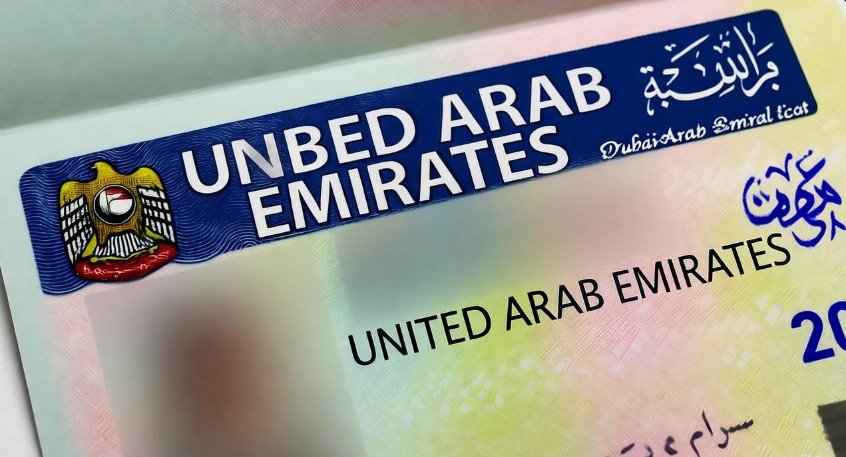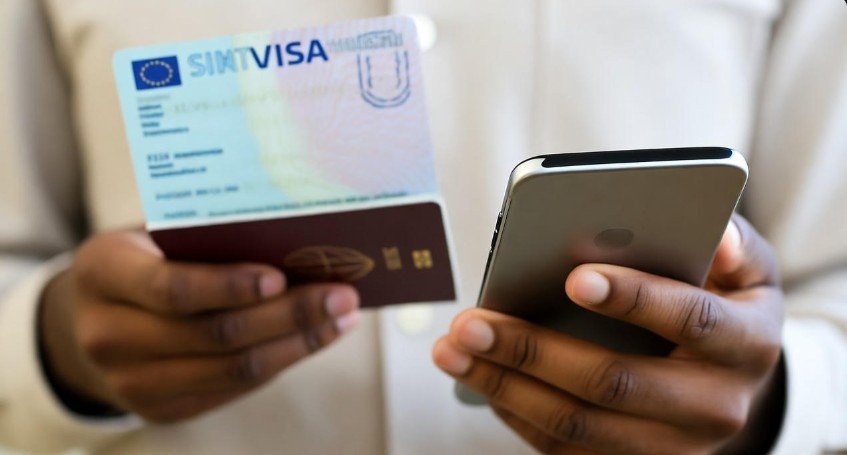Dubai Visa: Your Expert Guide 2024

Dubai Visa 2024: Your Expert Guide for a Seamless Journey
Planning an unforgettable trip to Dubai? Navigating the visa process can seem complex, but it doesn’t have to be. This guide breaks down everything you need to know about obtaining a Dubai visa in 2024. We’ll cover different visa types, eligibility, application steps, and essential tips to ensure your travel plans are smooth sailing. Get ready to explore the dazzling city of Dubai with confidence.
Key Takeaways
- Determine your visa type based on travel purpose.
- Gather all required personal and travel documents.
- Apply through official channels or a trustworthy sponsor.
- Understand processing times and costs for your visa.
- Prepare for potential visa interview or biometrics.
- Ensure your passport validity meets requirements.
Understanding Dubai Visa Requirements for 2024

Dubai, a global hub of commerce and tourism, attracts millions each year. Whether you’re visiting for a vacation, business, or to visit family, understanding the visa process is the first step to a successful trip. The United Arab Emirates (UAE), of which Dubai is a major city, has specific entry requirements for different nationalities. As of 2024, the rules remain largely consistent, but staying updated is crucial. This guide aims to simplify the process, making it easy for you to plan your adventure to this magnificent emirate.
Who Needs a Dubai Visa?
Generally, visitors from certain countries can enter the UAE visa-free for short stays. However, many nationalities will require a visa. It’s essential to check the specific regulations for your country of origin. The UAE government categorizes countries based on visa exemption agreements. If your country is not on the visa-free list, you will need to apply for a visa before your travel.
Types of Dubai Visas Available
Dubai offers various visa options to suit different travel needs. Choosing the right visa is paramount to avoid complications. Here are the most common types:
- Tourist Visa: For individuals visiting Dubai for leisure and tourism. This is the most common type of visa. It typically allows for a stay of 30 or 60 days, with options for single or multiple entries.
- Transit Visa: For travelers transiting through Dubai International Airport on their way to another destination. These are usually short-term visas, valid for 48 or 96 hours, allowing a brief exploration of the city.
- Service Visa: Issued to individuals coming to Dubai to provide specific services, often related to business or events.
- Student Visa: For those wishing to study at educational institutions in Dubai. This requires sponsorship from the institution.
- Work Visa/Employment Visa: For individuals who have secured employment in Dubai. This visa is sponsored by the employer and often involves a longer validity period.
- Investor/Investor Visa: For individuals looking to invest in businesses within Dubai. This visa has specific financial and investment criteria.
- Golden Visa: A long-term residency visa for investors, entrepreneurs, specialized talents, and individuals with exceptional skills. It offers a stay of 5 or 10 years and is renewable.
- Family Visa (Dependent Visa): For residents who wish to bring their family members (spouse, children) to live with them in Dubai.
Applying for Your Dubai Visa: A Step-by-Step Guide
The application process can vary slightly depending on your nationality and the type of visa you are applying for. However, the core steps remain consistent. It’s highly recommended to start your application well in advance of your travel date to allow for processing and any unforeseen delays.
Step 1: Determine Your Eligibility and Visa Type
Before you begin, confirm if you need a visa and which category best suits your travel purpose. You can typically find this information on the official website of the UAE Federal Authority for Identity, Citizenship, Customs & Port Security (ICP) or the General Directorate of Residency and Foreigners Affairs (GDRFA) of Dubai. Many travelers use airlines or authorized travel agencies as sponsors, which can simplify the process.
Step 2: Gather Required Documents
The documents needed will depend on the visa type, but here’s a general checklist. Always ensure your documents are up-to-date and clearly legible.
Required Documents for Dubai Visa Application
Document TypeDescriptionNotesPassportValid for at least six months beyond your intended stay. Must have at least two blank pages.Original and a copy of the passport’s first and last pages.Visa Application FormCompleted accurately and truthfully.Available from the sponsoring entity or immigration website.Passport-Sized PhotographsRecent, clear, and in color, with a white background.Usually 2-3 photographs are required. Check specific dimensions.Proof of AccommodationHotel booking confirmation or an invitation letter if staying with a host.Should clearly state your name and travel dates.Flight ItineraryConfirmed return or onward flight tickets.Not usually required for some visa types, but good to have.Sponsorship Letter / GuaranteeIf applying through a sponsor (e.g., airline, hotel, employer, resident relative).This is a crucial document for many visa applications.Proof of Financial MeansBank statements or other proof you can support yourself.May be required for certain long-term or business visas.Travel InsuranceValid for the duration of your stay in Dubai.Mandatory for some visa types.Visa Fee Payment ReceiptProof of payment for the visa application.Fees vary by visa type and duration.
Step 3: Find a Sponsor (If Required)
For many visitors, a sponsor is necessary to apply for a Dubai visa. This could be:
- An Airline: Emirates Airlines, Etihad Airways, and flydubai often offer visa assistance to passengers booking flights through them. This is a popular and convenient option for many tourists.
- A UAE-Based Company: If you are visiting for business, the company you are meeting or working with can act as your sponsor.
- A Dubai Tourism Agency: Many reputable travel agencies in Dubai can arrange visas for their clients.
- A UAE Resident Relative/Friend: If you have a close family member or friend who is a UAE national or a resident with a valid residency visa, they might be able to sponsor your visit.
- A Hotel: Some hotels in Dubai offer visa sponsorship services for guests booking their stay with them.
The sponsor will usually submit the application on your behalf to the relevant immigration authorities. They will provide you with an application reference number.
Step 4: Submit Your Application and Pay Fees
Once you have your sponsor and all documents ready, the application is submitted. This is often done online through the ICP portal, GDRFA website, or via your sponsor’s portal. You will need to pay the applicable visa fees at the time of submission or upon approval, depending on the sponsor’s process.
Visa Fees Overview (Approximate):
Visa TypeValidityApproximate Fee (AED)Short-Term Tourist Visa30 Days350 – 600Long-Term Tourist Visa60 Days850 – 1200Transit Visa48 Hours50 – 100Transit Visa96 Hours150 – 200
Note: Fees are subject to change and may vary based on the sponsor and applicant’s nationality.
Step 5: Await Approval and Receive Your Visa
Processing times can vary. A standard tourist visa might take 2-5 working days, but expedited services are often available for an additional fee. Check with your sponsor for estimated timelines. Once approved, your visa will typically be issued electronically and sent to you via email. Keep a copy of your visa and passport readily available.
Pro Tip: Always ensure the details on your visa match your passport information exactly. Any discrepancies can cause significant issues upon arrival.
Visa on Arrival: Who Qualifies?
Nationals of certain countries are eligible for a visa on arrival in the UAE. This means you do not need to apply in advance. Upon arrival at Dubai International Airport, you can proceed to the immigration counter and obtain your visa stamp after meeting the entry requirements.
As of 2024, citizens of the following countries generally qualify for visa-on-arrival:
- European Union member states (Austria, Belgium, Bulgaria, Croatia, Cyprus, Czech Republic, Denmark, Estonia, Finland, France, Germany, Greece, Hungary, Ireland, Italy, Latvia, Lithuania, Luxembourg, Malta, Netherlands, Poland, Portugal, Romania, Slovakia, Slovenia, Spain, Sweden)
- United Kingdom
- United States of America
- Canada
- Australia
- New Zealand
- Japan
- Singapore
- South Korea
- China (specific conditions apply for certain types of visas)
- And others.
It is crucial to verify the latest list of visa-on-arrival countries on the official ICP website before your travel, as this list can be updated.
Navigating Dubai Immigration and Entry
Upon arrival in Dubai, whether you have a pre-approved visa or qualify for a visa on arrival, you will need to pass through immigration. Here’s what to expect:
- Immigration Counter: Present your passport and visa (if pre-approved) or your passport for a visa on arrival.
- Biometrics: You may be required to undergo fingerprint scanning and a facial scan.
- Immigration Officer: The officer will review your documents and may ask questions about your visit, purpose, and duration of stay. Be honest and direct in your answers.
- Entry Stamp: Once cleared, your passport will be stamped with the entry permit and visa details.
Common Reasons for Visa Rejection
While rare for legitimate travelers, visa applications can be rejected. Common reasons include:
- Incomplete or Inaccurate Application: Missing information or errors on the form.
- Insufficient Funds: Not providing proof of adequate financial resources.
- Invalid Passport: Passport not meeting the validity requirements or having insufficient blank pages.
- Previous Visa Violations: Overstaying a previous visa or violating entry regulations.
- Security Concerns: If an applicant is flagged for security reasons.
- Lack of a Sponsor: For visa types that require one.
If your visa is rejected, you will typically be notified of the reason. It’s advisable to address the issues and reapply, or seek advice from your sponsor or a reputable immigration consultant.
Tips for a Smooth Dubai Visa Application and Travel
To ensure your journey to Dubai is as hassle-free as possible, keep these expert tips in mind:
- Apply Early: Start the visa process at least 4-6 weeks before your planned departure, especially during peak travel seasons.
- Double-Check Everything: Review all submitted documents and information for accuracy.
- Use Reputable Sponsors: If using a travel agency or airline for sponsorship, ensure they are officially authorized and well-reviewed.
- Understand Visa Validity: Pay close attention to the entry and exit dates on your visa. Overstaying can result in hefty fines and future travel bans.
- Keep Copies: Carry photocopies of your passport, visa, and booking confirmations separately from the originals.
- Be Prepared for Questions: At immigration, be ready to answer questions about your trip.
- Stay Informed: Visa regulations can change. Always check the latest requirements from official sources before applying.
Frequently Asked Questions (FAQ) about Dubai Visas
Q1: How long is a Dubai tourist visa typically valid for?
A1: Dubai tourist visas are commonly issued for 30 or 60 days, depending on the type you apply for. You must enter and exit within these validity periods.
Q2: Can I extend my Dubai tourist visa?
A2: Yes, in some cases, you can extend your tourist visa without leaving the UAE, typically for an additional 30 days, provided you meet the extension criteria and pay the required fees.
Q3: What happens if I overstay my visa in Dubai?
A3: Overstaying your visa can lead to significant fines, detention, and deportation. It can also affect your ability to obtain future UAE visas or enter the country.
Q4: Do children require a separate visa for Dubai?
A4: Yes, all individuals, including infants and children, must have their own visa (if required based on nationality) and passport for entry into Dubai.
Q5: How can I check the status of my Dubai visa application?
A5: If you applied through a sponsor, you can usually check the status via their portal or by contacting them directly. The ICP also offers online service portals for status checks.
Q6: Is travel insurance mandatory for a Dubai visa?
A6: While not always mandatory for all visa types, it is highly recommended to have comprehensive travel insurance that covers medical emergencies, trip cancellations, and lost belongings. Some visa applications do require it.
Conclusion
Securing a Dubai visa in 2024 is a straightforward process when you are well-informed and prepared. By understanding the different visa types, gathering the necessary documents, and following the application steps diligently, you can ensure a smooth entry into this vibrant global city. Remember to always refer to official UAE immigration sources for the most current information. Your extraordinary Dubai adventure awaits!



